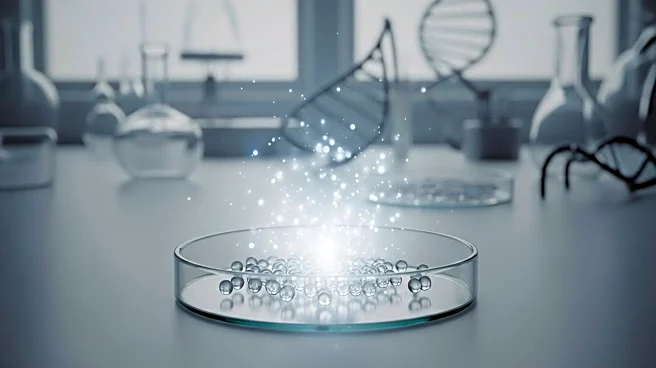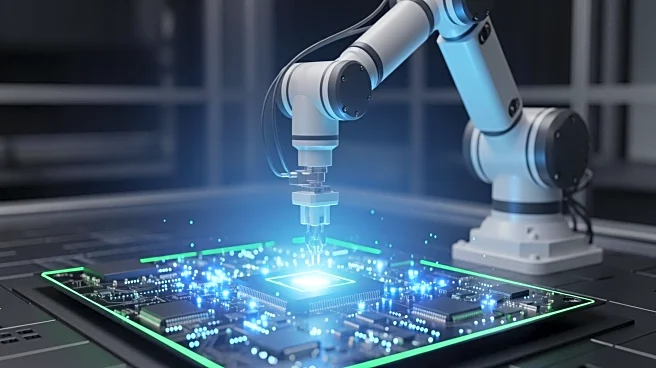What is the story about?
What's Happening?
A team of scientists has successfully transformed human skin cells into fertilizable eggs, marking a significant breakthrough in fertility research. This process, known as in-vitro gametogenesis (IVG), involves removing the nucleus from skin cells and transferring it into a donor egg, which has had its nucleus removed. The technique, similar to the one used to clone Dolly the sheep, allows the skin cells to mimic the division process of normal egg cells. The researchers managed to create 82 developing eggs, which were then fertilized with sperm through in vitro fertilization (IVF). However, only less than nine percent of these embryos developed to the blastocyst stage, which is necessary for potential transfer to the uterus. Despite the low success rate, this research represents a promising step towards enabling individuals who cannot use their own eggs due to age or medical conditions to have genetically related children.
Why It's Important?
This development could revolutionize the understanding and treatment of infertility, which affects one in six people worldwide. The ability to create eggs from skin cells could provide new reproductive options for older women, women lacking eggs, and same-sex couples, allowing them to have children genetically related to both partners. While the technology is still in its early stages and requires further refinement to address chromosomal abnormalities, it holds the potential to transform fertility treatments and expand reproductive possibilities. The research also adheres to existing U.S. ethical guidelines, ensuring responsible scientific advancement.
What's Next?
The technology is estimated to be at least a decade away from clinical application, as researchers continue to work on achieving genetically normal eggs with the correct number of chromosomes. Further studies and advancements are needed to improve the success rate and address the abnormalities observed in the embryos. The scientific community will likely continue exploring different techniques, such as reprogramming skin cells into induced pluripotent stem cells, to determine the most effective method for creating viable eggs. As the research progresses, it may eventually lead to new fertility treatments and options for individuals facing infertility.
Beyond the Headlines
The ethical implications of creating eggs from skin cells are significant, as this technology could redefine the concept of infertility and reproduction. It raises questions about the future of genetic engineering and the potential for creating designer babies. Additionally, the ability to produce eggs from skin cells could impact societal norms and cultural perceptions of family and parenthood. As the technology advances, it will be crucial to address these ethical and cultural dimensions to ensure responsible and equitable use.















